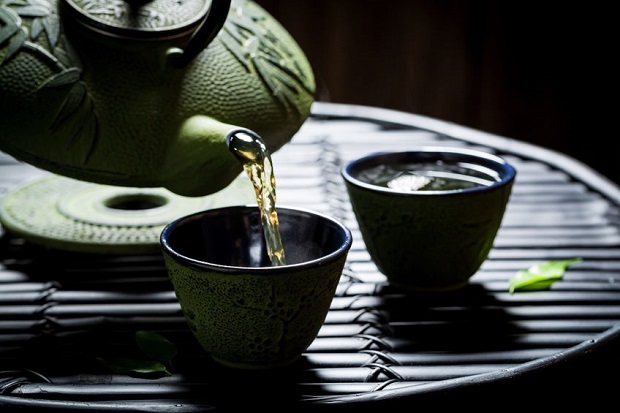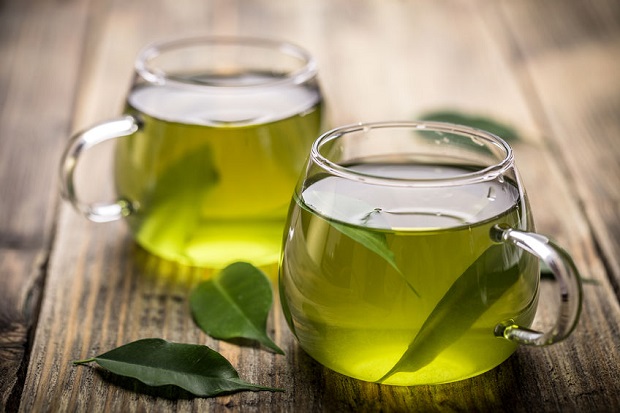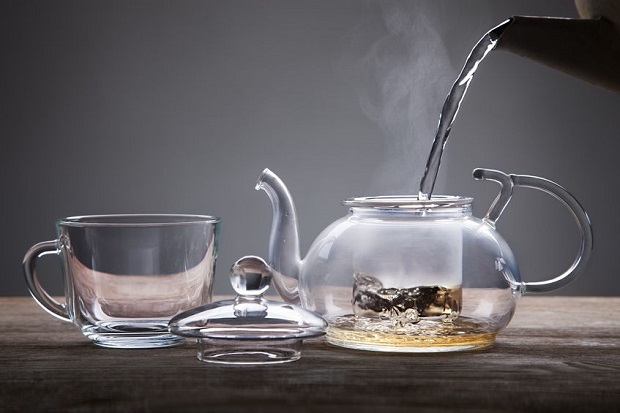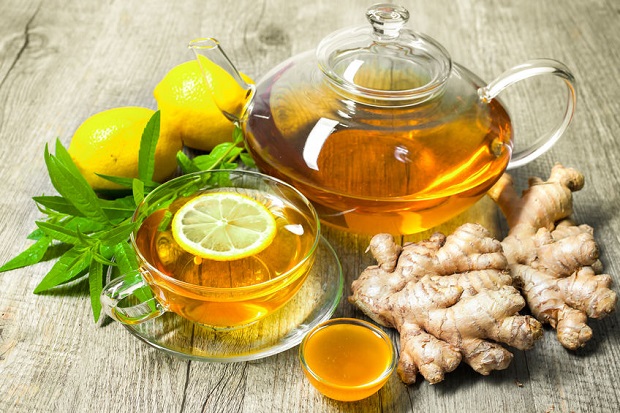
Does Green Tea Have Antioxidants?
If you are seeking to reap the health benefits of antioxidants from your diet, green tea is a great choice. Filled with catechins, a powerful antioxidant, drinking a few cups of green tea every day is an easy way to boost your antioxidant intake.
Jump Ahead
- Green Tea and Catechins
- Why Green Tea Is Best
- Adding Lemon Improves Absorption
- Not All Are Convinced
- Resources
Green Tea and Catechins

Catechins are phenolic compounds abundant in tea, cocoa, and berries that possess potent antioxidant activity. [1] These catechins are responsible for the possible health benefits derived from drinking green tea, the dried leaves of which contain a whopping 30-40% catechins. [2] Catechins possess antioxidant, anti-inflammatory, anti-diabetic, anti-mutagenic, anti-hypertensive, anti-bacterial, and anti-viral effects. Many studies reveal that green tea may have many health benefits, including protecting against certain cancers and cardiovascular diseases. [3]
Why Green Tea Is Best

All tea is produced from the Camellia Sinensis plant and can be categorized into green, black, and oolong tea. The difference between them is how the tea leaves are processed. Black tea is oxidized fully before drying. This oxidation gives the tea its dark color and triples the caffeine content. Oolong tea is partially oxidized. Green tea is naturally dried to prevent oxidation which helps to preserve the tea flavor and catechin concentrations. [4]
One study tested the different types of teas to determine the catechin concentrations of each and concluded that green teas contained the highest content of catechins than both oolong and black teas due to the fermentation process. [5]
But being aware of the catechin concentrations in the tea you purchase is not that cut and dry. Catechin concentrations in commercial teas, including green, black, and Oolong, will vary based on the species, season, horticultural conditions, and, most importantly, the degree of oxidation during manufacturing. [6]
Adding Lemon Improves Absorption

Squeezing a little lemon in that tea has more benefits than adding a bit of flavor. Researchers at Purdue University have found that citrus juices help the body to absorb catechins more readily.
The study lead, Mario Ferruzzi, assistant professor of food and science at Purdue University, said that catechins are relatively unstable in non-acidic environments such as the intestines, so less than 20 percent of the total remains after digestion.
When tested, lemon juice helped to retain 80 percent of the tea catechins. Next in terms of stabilizing power were orange, lime, and grapefruit juices. The study concluded that vitamin C and citrus juices interact with catechins in a way to prevent their degradation in the intestines. [7]
Not All Are Convinced

Though many studies tested the positive effects of green tea and its components on animals and humans, The National Center for Complementary and Integrative Health warns that insufficient evidence supports these claims. [8] The FDA has also taken the stand against claims on product labels that green tea has health benefits, citing that there is too much conflicting evidence to allow manufacturers to add these health claims to products sold in the US. [9]
Resources
- [1] Science Direct – “Catechin.”
- [2] Gupta, J. “A Review on the Beneficial Effects of Polyphenols on Human Health.” International Journal of Pharmacology. 2008. Vol: 4, No: 5, pp: 314-338 <https://scialert.net/fulltextmobile/?doi=ijp.2008.314.338>
- [3] Velayutham, P. “Green Tea Catechins and Cardiovascular Health: An Update.” Current Medicinal Chemistry. 2008. Vol: 15, No: 18, pp: 1840-50. “https://www.ncbi.nlm.nih.gov/pmc/articles/PMC2748751/”
- [4][6] Dionex – “Sensitive Determination of Catechins in Tea by HPLC.”
- [5] Yuegang Zuo. “Simultaneous determination of catechins, caffeine and gallic acids in green, Oolong, black and pu-erh teas using HPLC with a photodiode array detector.” Talanta. 2002. Vol: 57, No: 2, pp: 307-316. <https://www.sciencedirect.com/science/article/abs/pii/S0039914002000309>
- [7] Science Daily – “Citrus Juice, Vitamin C Give Staying Power to Green Tea Antioxidants.”
- [8] National Center for Complementary and Integrative Health – “Green Tea.”
- [9] WebMD – “FDA Rejects Green Tea Heart Claim.”
DISCLAIMER: THIS WEBSITE DOES NOT PROVIDE MEDICAL ADVICE
The information, including but not limited to text, graphics, images, and other material on this website, is for informational purposes only. No material on this site is intended to be a substitute for professional medical advice, diagnosis, or treatment. Always seek the advice of your physician or other qualified healthcare providers with any questions you may have regarding a medical condition or treatment before undertaking a new healthcare regimen, and never disregard professional medical advice or delay in seeking it because of something you have read on this or any other website.





